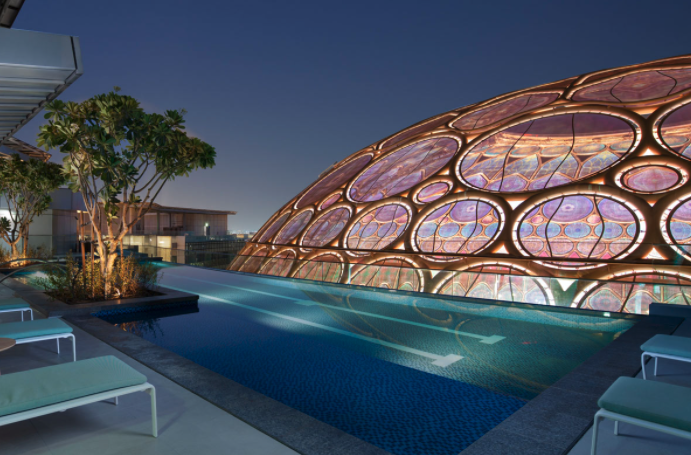UAE’s non-oil GDP is predicted to grow by 3.8 percent this year and 4.1 percent next year, according to the latest report from ICAEW
Expo 2020 Dubai, which throws its doors open to the world this week, is expected to boost recovery for the UAE’s non-oil economy, according to a new report commissioned by ICAEW.
The six-month mega event has already encouraged economic activity, and alongside government initiatives, like the Dubai 2040 plan and Abu Dhabi’s cultural investment drive, the rest of 2021 looks promising, “due to expansionary government policies”, the analysis finds.
“Expo 2020… has already encouraged economic activity this year and potentially laid a foundation for even more growth in the coming months. The removal of the UAE from the travel ban lists of important origin markets, like the UK and Saudi Arabia, is timely, while the acceptance of vaccinated travellers from much of Europe is positive for the success of the global event,” said Michael Armstrong, ICAEW regional director for the Middle East, Africa and South Asia.
However, concerns over the fast-spreading Delta Covid-19 variant persist, and a high global case count may discourage some travellers from attending the event that expects to attract 25 million visits, both virtually and in person, warned the report.
“Keeping Covid-19 case levels low will be necessary to ensure sustained economic growth,” Armstrong said.
But despite circumstances beyond its borders, Dubai has made it clear for some time that it is ready for business. With over 82 percent of UAE residents vaccinated, national Covid-19 case counts have plummeted and now hover around 300 cases reported daily (277 reported on Tuesday). Restrictions have loosened considerably, and most recently social distancing stickers were removed from Dubai Metro, which has been expanded to reach the Expo site.
According to a new survey from YouGov, 82 percent of UAE residents are likely to attend the global showcase event, which is set to run from October 1 through to March 31, 2022, and 54 percent said it will help in creating more economic opportunities in the country.
The event is expected to lift travel and tourism, which accounts for up to 16 percent of GDP in the UAE, both directly and indirectly through its impact on the supply chain and the spending it supports.
Hotel occupancy rates, meanwhile, have also recovered, supported by a rise in ‘staycations’ and visitor numbers increasing by nearly 40 percent in 2021 – after dropping by two-thirds in 2020. However, they are unlikely to return to pre-pandemic levels until 2023, according to ICAEW.
Dubai’s non-oil foreign trade jumped 31 percent in the first half compared to the first half of 2020, a government statement on Monday said.
Non-oil GDP is predicted to grow by 3.8 percent this year and 4.1 percent next year, according to ICAEW’s report.
“The UAE is firmly committed to an open and inclusive growth agenda and has taken steps to develop sectors and industries that foster innovation, accelerating them into the post-Covid era. These government initiatives, alongside reforms around visas and citizenship and 100 percent foreign ownership of onshore companies, put the UAE on a good footing to accelerate diversification plans through investment in research and development of high value-added and digital sectors, as well as the green economy,” said Scott Livermore, ICAEW economic advisor and chief economist at Oxford Economics.
SOURCE: Arabianbusiness.com

